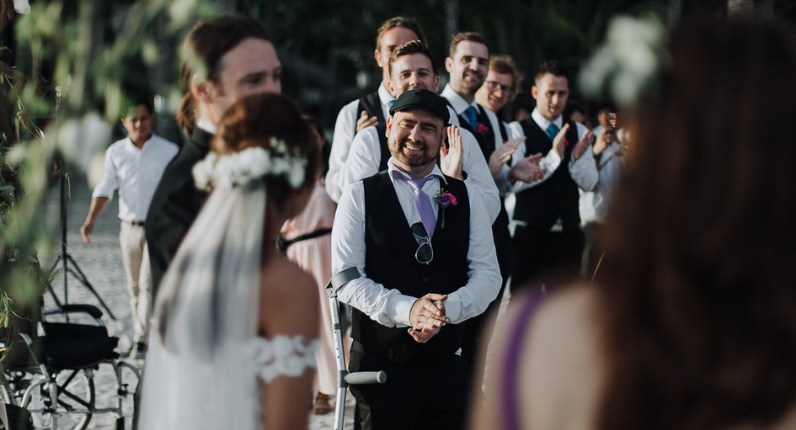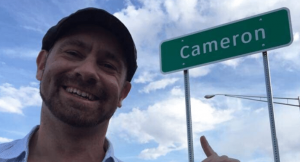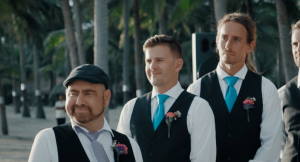The story of a brother’s love (a complementary blog to Story within a story)
Cameron did not bargain for more time… except once.
About 20 months prior to his passing, he was told he had a few weeks left. This was late August 2017, a couple of weeks after they discovered Webster.
Yes, they had said so many times that Cameron didn’t have long to live. They really couldn’t see Cam through his diagnosis to know that saying something like that was not giving him a prognosis, but giving him a challenge to rise to. (I don’t know about everyone else who knew him, but the only way I could ever get Cam to do something that wasn’t his idea was to strongly suggest that he do the opposite.)
Up until this time, Cameron had not looked too far ahead. He had talked a lot about creating more life in his time, rather than extending or prolonging his life. He had remained steadfastly focused on living as much as possible in whatever time he had. He didn’t think about whether that was until next week, next scan, next month, or next year. He just kept putting one foot after the other and focused on living his best life, and making a difference in the world while he was at it, something that he did well enough to leave an incredible legacy.
But that time, he sat in front of his enormous yearly planner whiteboard, and looked ahead.
He needed 23 weeks.
That was the first and only time Cam truly began to think about what he would be prepared to bargain to get it, rather than to accept his prognosis. He decided to have more radiotherapy, to try to shrink the tumours and slow down their growth. His doctors advised against it, but he chose to do it anyway.
There would be a high risk of causing brain tissue necrosis and nerve damage, perhaps shrinking the tumour but also causing brain damage and resulting in dysfunction. He was trying to delay losing his function as long as possible, not speed up the process.
It was a risk, but to do nothing was not an option.
His risk paid off. He got some additional neuro deficits and a new wheelchair, but he got his 23 weeks and got the most important tick on his bucket list: making it to his brother’s wedding in the islands of The Philippines, in January 2018, and delivering his best man speech.
Even reading through our messages at this time, remembering the conversations we had while he was away, the pain, the struggles with mobility and independence, his adamant refusal to use a wheelchair or be pushed up the aisle, his absolute determination to stand by his brother’s side to deliver that speech… nothing can capture or convey the level of impossible that he endured to make it to that wedding and complete his most important role.
“I won’t mention the back up speech,” he said after sending me through the dot points of what he wanted to cover in his best man speech, asking me if he had left out anything important.
The back up speech was a video he had recorded, months earlier, before he repeated the radiotherapy, in case he died before the wedding.
“No. No one needs to know about that. We can delete that now. You’ve got this.”
No one knew how he struggled, how his body and his brain was exploding for the duration, the photophobia, the blindness, the refusal to take too much pain relief for fear he would sleep through the wedding, his sacrifice of missing the welcome dinner, and sleeping through his 40th birthday party (and his determination not to steal the limelight from Nathan and Michelle), so that he could “save himself” for the ceremony.
When I was talking about this with Nathan, I thought of these memories as the story of a brother’s love. But I realised when we shared our stories that this was a story of the love between brothers that went both ways. Cameron also didn’t know the arrangements and accommodations that Nathan and Michelle had put in place as a contingency: arranging a Tuk Tuk and creating an accessible walkway through the middle of a Bohol beach in case Cameron couldn’t walk up the aisle on his crutches, in case he needed to use the wheelchair. In case he couldn’t talk. But Cam didn’t need those accommodations, and his brother’s love meant that he didn’t even know they’d been made. And Nathan didn’t know until afterwards the choices Cameron had made to maximise the possibility that he could be there by his side.
I didn’t know how it went, but I could guess. Cameron didn’t send or read another message for three days after his “It’s time!” as he left his room to head to the wedding ceremony. He did this sometimes when he needed to sleep through the pain. He also did it when he needed to switch off his communications to focus his energy and attention on one thing. In this instance, it was his family, who spent a week together at the resort after the ceremony.
The three days of radio silence.
And then a one line response to a stream of my unread messages.
“It was worth it.”
Want to learn more about Cameron Gill’s journey, his legacy, and his legacy projects? CLICK HERE for Cam’s official Facebook legacy page. We have heaps more of his story to share, so like and follow to stay updated.



